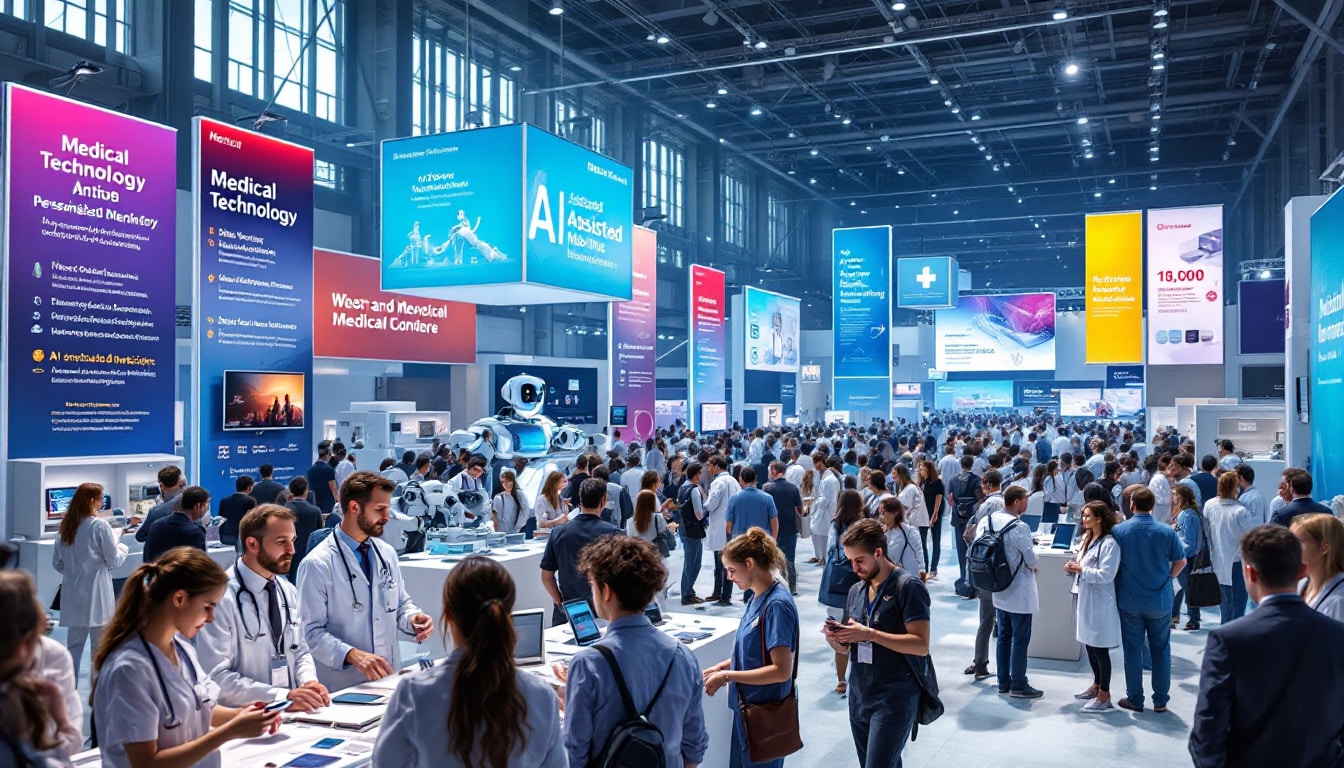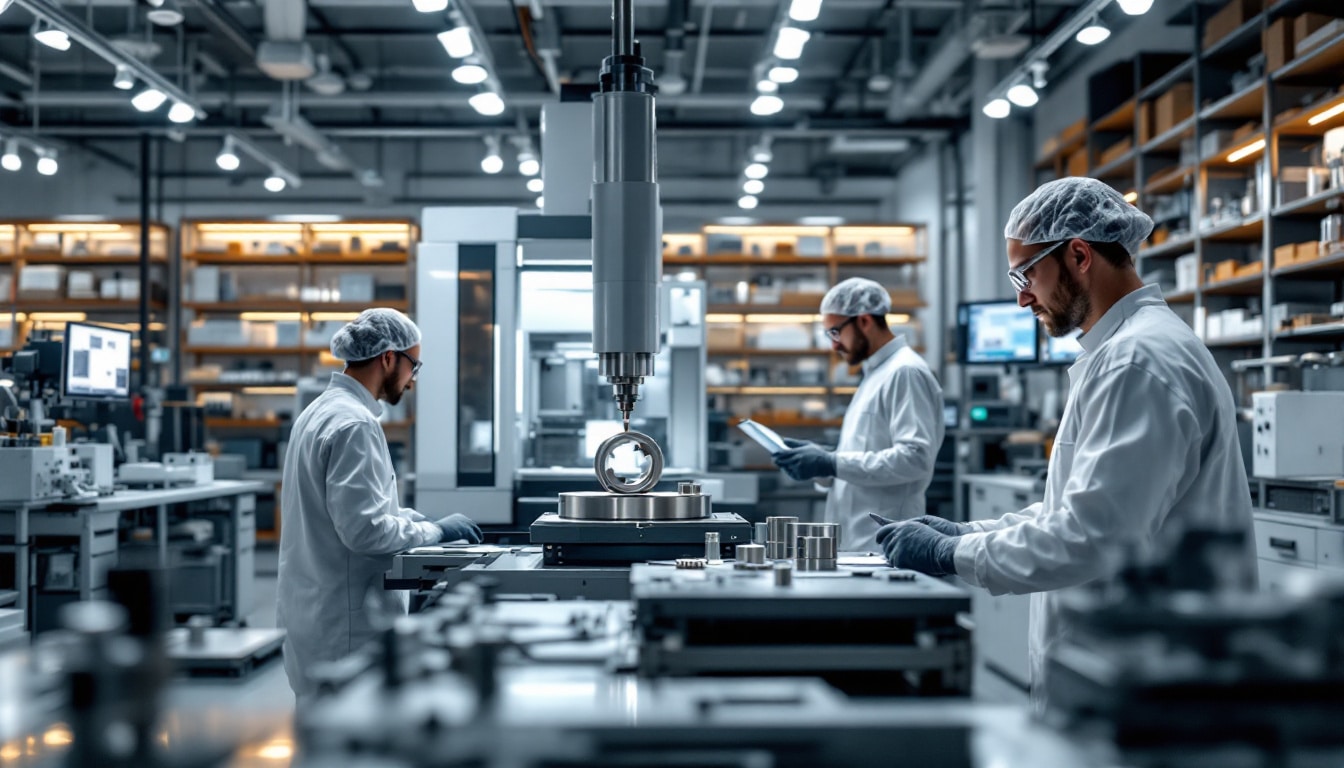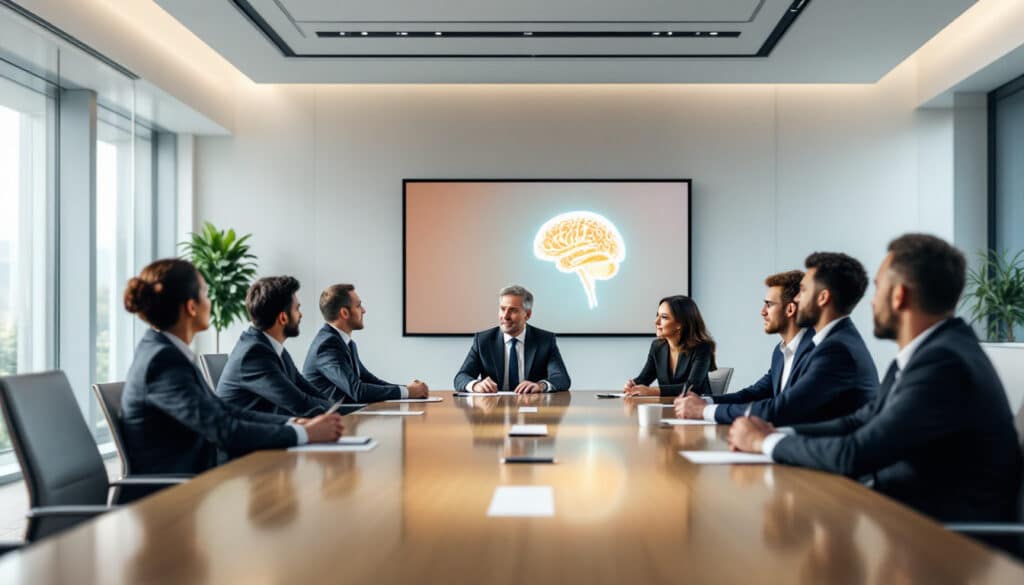In a context where theartificial intelligence revolutionizes the medical sector, Harrison.ai caused a sensation by presenting its latest AI model dedicated to radiology. This innovation, which uses the power of genAI, promises to transform diagnostic practices by delivering unprecedented accuracy and efficiency. As start-ups increasingly rely onAI to accelerate research and design new therapeutic solutions, radiology is positioning itself as one of the most advanced fields in this quest for improvement. Through this progress, the prospects for development ofmedical imaging promise innovative richness.
|
IN BRIEF
|
Harrison.ai unveils its innovation in radiology with genAI
In a world where artificial intelligence (AI) is taking a leading role in the healthcare sector, Harrison.ai recently made a splash with the launch of its revolutionary AI model dedicated to radiology. Through this advance, the start-up aims to redefine medical practices, strengthen the effectiveness of diagnostics and provide valuable support to healthcare professionals. This article explores this innovation, as well as other notable facts about AI in medicine.
GenAI and the transformation of radiology
Harrison.ai’s genAI model stands out for its ability to analyze large medical data sets and provide accurate, real-time analytics. By integrating sophisticated algorithms, this system helps radiologists in their diagnoses, improving the detection of anomalies while reducing human errors.
This progress marks a new era for augmented radiology, where AI becomes an essential ally. Health professionals can thus benefit from a powerful analysis tool which allows them to focus on more complex aspects of their medical practice.
Start-ups and AI at the heart of medical innovation
Many start-ups, supported by renowned pharmaceutical laboratories, are emerging in the market with AI-based solutions. These new companies seek to accelerate research and innovate in the design of molecules in order to push the boundaries of traditional medicine. With AI tools, the speed and accuracy of research improves, paving the way for revolutionary treatments.
The challenges posed by AI in radiology
Despite advances, the integration of AI in radiology does not come without challenges. One of the major problems lies in the training AI models, which requires access to diverse and high-quality data. Diagnostic errors can also occur if these models are not properly trained or if biases in the data are not identified.
The medical community, well aware of these issues, is working to overcome these difficulties. Studies, such as those addressing the diagnostic challenges faced by AI algorithms in pathology and radiology, highlight innovative solutions and strategies to adopt to guarantee the reliability of these technologies (source: IJMS).
Perspectives and opportunities with generative AI
Generative AI is emerging as one of the most promising branches in health, being capable of creating varied content such as texts and images. Its applications in the medical field offer fascinating perspectives for the development of new treatments and personalization of care. The opportunities it presents justify intensifying research to better understand its potential (source: Mind).
With advances in AI, medicine could be moving toward an era where diagnoses become not only more accurate, but also faster, transforming the way care is delivered to patients.
Healthcare AI Market News and Trends
Along with Harrison.ai, other companies are emerging exploring innovations in the medical sector. Projects like the Plug And Play MedTech Expo in Poland show how this field is growing. Companies like Penumbra, which recently obtained CE marking for its CAVT technologies in Europe, also illustrate this dynamic and commitment to innovation (source: Global Health).
Public health issues, the growing demand for quality care and the urgency of a more effective approach for health professionals are drivers that propel innovation in this sector. As AI and healthcare continue to merge, it will be fascinating to watch the evolution of these technologies and their impact on future care.
[SFR Actu] IA et séquences IRM générées artificiellement, à la rescousse de la détection des lésions de SEP !
— SFR (Radiologie) (@SFRadiologie) January 16, 2024
Découvrir l'article d'Emma O'Shaugnessy pour la SFNR
👉https://t.co/FZ5eamFsL4#IA #IRM #SEP pic.twitter.com/3IFGAoYYVB
The healthcare landscape is changing thanks to the rise of artificial intelligence, with major players like Harrison.ai who unveil their revolutionary advances in the field of radiology. The launch of their multimodal AI model, dubbed genAI, represents a significant advance in the management of medical diagnoses. This cutting-edge technology is designed to improve the precision and theefficiency of medical imaging, thus opening new avenues for faster and more reliable diagnoses.
The development of artificial intelligence in radiology highlights the desire to integrate technological solutions into clinical practices. Thanks to powerful algorithms, AI plays a major role as second drive in the analysis of medical images, thus providing valuable support to healthcare professionals. This growing integration is also transforming the way radiologists interpret results, making the process both faster and less error-prone.
At the same time, many start-ups, often supported by large laboratories, are also highlighting the use of AI to accelerate research and optimize the design new therapeutic molecules. This demonstrates a growing interest inartificial intelligence in the pharmaceutical industry, creating opportunities for innovation and successful partnerships to improve existing treatments.
As technologyGenerative AI are growing, it is becoming clear that the healthcare sector is at the dawn of a new era. This development promises to bring significant changes in diagnosis, treatment and care management, establishing a framework for a future where patients benefit from more precise and personalized medicine.














